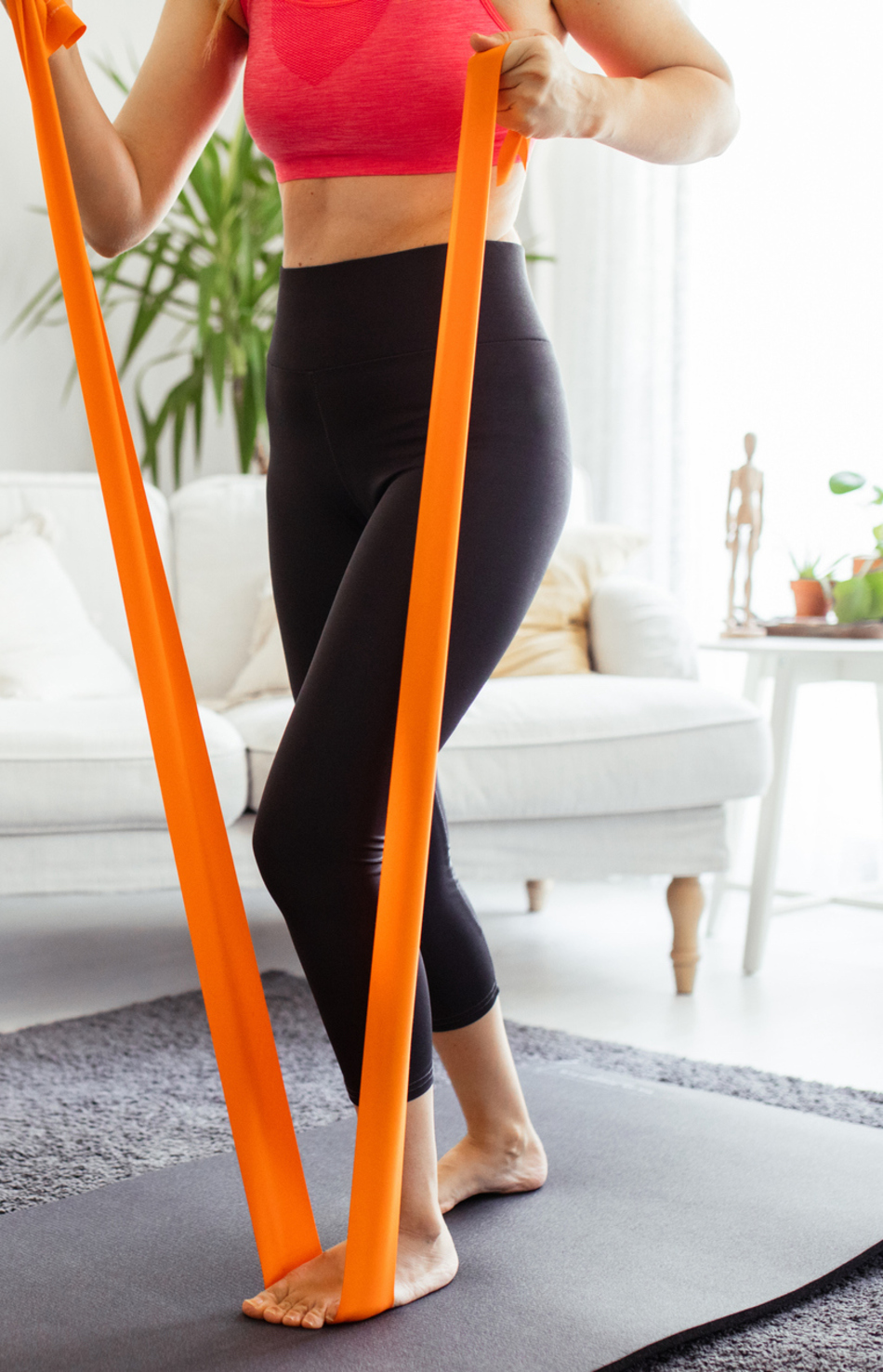
Interviewer: Are you working out from home with exercise bands? Well, you might want to watch out for this injury.
Dr. Troy Madsen is an Emergency Room physician at University of Utah Health. And a lot of us are trying to get in some exercise at home, and we might reach for those exercise bands. But, Dr. Madsen, I understand that there could be some risk working out with those exercise bands. Tell me more about that.
Dr. Madsen: You know, Scot, I have used exercise bands, and this is a risk I've never really considered, but apparently there is an increase in risk and injury to the eye that has been something that's been noted since the pandemic started. So what we're seeing, I think, more and more people are not going to the gym, they're working out from home, and a great tool is a resistance band. If you've ever used this, it's like a giant elastic band. You know, these things are huge. You put it around your foot, and then maybe you're leaning back or doing something with your leg, all kinds of different things, stretching, strengthening.
Well, at the University of Miami, they actually published their experience with seeing multiple patients come to the Emergency Department with injuries to their eyes from these resistance bands. So the title of this article is "Ocular Trauma Secondary to Exercise Resistance Bands During the COVID-19 Pandemic," published in the "American Journal of Emergency Medicine."
And you can imagine how this can happen. I don't know if this has ever happened to you, but let's say you wrap it around your foot, and you're stretching your leg out, and that thing is really tight. And then, maybe you've got socks on or something, and it slips off your foot and flips back and hits you in the eye.
Interviewer: Oh. Ow. Oh.
Dr. Madsen: Yeah, sounds miserable. Sounds absolutely miserable.
So they reported their experience in the "American Journal of Emergency Medicine," and they talked about 11 patients they had seen, and these were not minor injuries to the eye. So they said 11 patients, 14 eyes, so that means several of these patients had both eyes injured. Eighty-two percent of these patients had a hyphema.
So a hyphema is a pretty big deal. That's where you get blood behind the cornea. And, you know, if you ever look in the mirror, you see the cornea, you see your iris, the colored part of your eye. The cornea is the clear part over the top of that. And if you ever see blood there, it just looks like just this red line that's filling up behind there, that's a pretty big deal. That's a serious injury.
And then, vitreous hemorrhage in 36% of these patients. That's blood back behind the iris, back in kind of the main part of the eye. That can really affect your vision. Potentially, if it causes enough damage, potentially have long-term effects. Same thing with a hyphema if it's not treated.
So these are not minor injuries, but they saw a number of these, and just given the number they've seen, they reported on it in the "American Journal of Emergency Medicine" to make people aware that things are happening with resistance bands.
Interviewer: All right. So not happening to, necessarily, a large number of people that we know of, but is in the realm of possibility of happening apparently.
Dr. Madsen: Exactly. And I think the reason they published this and their conclusion was, if you're using a resistance band, wear glasses or consider wearing goggles. I mean, it may seem like overkill. It is something that emergency departments are seeing. This is one emergency department's experience. I'm sure it's happening elsewhere. I have to be honest. I have not seen this in the ER yet, but if we talk to some of our ophthalmologists, my guess is that they probably have. So it's out there, it's happening. You know, takeaway, be aware of it and consider wearing some glasses or goggles if you're using a resistance band.
Interviewer: Yeah, or consider just making sure that you're looking at how you're using it, and "If it was to slip right now, would it slip back and snap me in the eye?" And is there an adjustment you can do in your form that would, you know, prevent that from happening?
Dr. Madsen: Yeah, exactly.
When a "Pop" Signals an ACL Tear: Diagnosis and Next Steps
Contact sports come with their share of risks—but few injuries sideline athletes quite like a torn ACL. Orthopedic surgeon Patrick Greis, MD, breaks down what happens when this key stabilizing ligament ruptures, who is most at risk, and what to expect from recovery.






